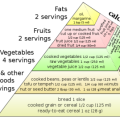The word gluten has skyrocketed in popularity and seems to carry a negative connotation, but what exactly is it? Gluten is a protein found in the grains wheat, barley and rye. Although experts think celiac disease used to be a rare disorder and once believed to affect one in every 10,000 people, it is now estimated that 2.5 million  people may have celiac disease. Shockingly, only about 150,000 people have been diagnosed and aware they have it.
people may have celiac disease. Shockingly, only about 150,000 people have been diagnosed and aware they have it.
One of the major reasons that the number of people with celiac disease and gluten sensitivity continues to rise is because wheat is not the same today as it used to be. It has been agriculturally hybrid, not genetically lab engineered over some decades to resist fungus, grow more quickly, and be more pliable for industrial bread baking. As a consequence, 50-60 years ago wheat containing only five percent gluten has become 50 percent gluten today.
Gluten Sensitivity vs. Celiac Disease
Gluten sensitivity refers to someone who cannot tolerate gluten and they may develop gastrointestinal symptoms similar to those who have celiac disease, but it is generally less severe. According to research and studies done, individuals with gluten sensitivity showed no signs of intestinal damage.
Celiac disease is a chronic gut inflammation that destroys intestinal villi responsible for absorbing nutrients. A healthy intestine has an abundance of villi (tiny projections that increase the intestinal surface area), which allows for the absorption of nutrients into the bloodstream. When someone has celiac disease, these villi are flattened and proper absorption of nutrients is compromised. The continued mal-absorption of nutrients such as calcium, magnesium, vitamin D, B vitamins, and omega-3 fatty acids can contribute to mood disorders, lower energy levels, poor bone health, insomnia, attention problems, and a host of other issues.
Potential symptoms of a gluten allergen
People with celiac disease and gluten sensitivity have a range of different symptoms. Here is a list of some symptoms that may be caused by gluten.
- Abdominal pain
- Bloating
- Anemia
- Unexplained dizziness
- Numbness in the hands and feet.
- Chronic diarrhea or constipation
- Migraines
- Depression
- Fatigue
- Infertility
- Difficulty concentrating
While getting tested can help identify a gluten sensitivity or celiac disease, one of the best ways to know if gluten poses a problem for you is to eliminate all things that contain gluten for a short period of time, about 2 to 5 weeks and see how you feel.
I am considering giving up gluten but it seems difficult, is it?
There is no way around the fact that many things we eat contain gluten. Bread, cakes, cookies and even some sauces and vitamins contain gluten. Transition slowly, and once you adapt and find alternatives to foods that contain gluten, it won’t feel restricted at all. A gluten-free diet that is nutritionally balanced and full of nutrients and minerals can be one of the healthiest ways to live.
by Melissa Sanborn of Nutritional Brands, PureVegan






2 Comments
Chia (324 comments)
June 25, 2013 at 11:34 amI know a handful of people who says they feel better when they omit gluten from their diet.
The Veggie Cook (42 comments)
July 5, 2013 at 11:22 amI personally don’t have a problem with gluten though I also know some who do.